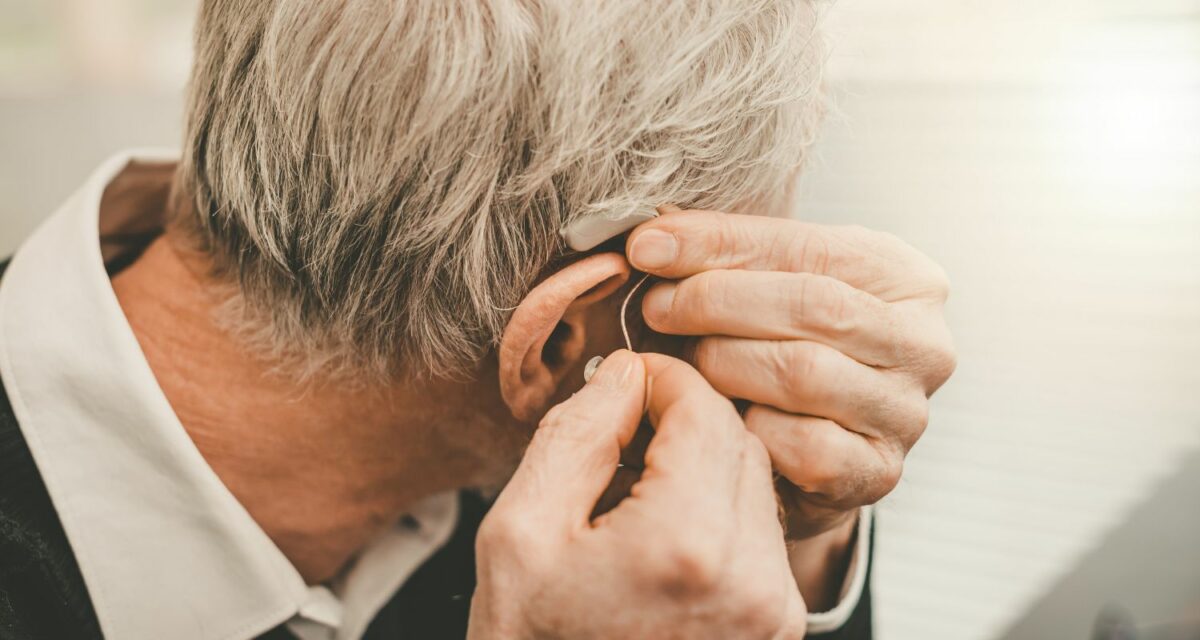Unlike a new pair of eyeglasses, hearing aids take a while to get used to. With the right prescription, eyeglasses can improve your vision the moment you put them on. With hearing aids, it takes some time to get used to. This in part may be due to the gradual development of hearing loss in most cases. It can progress slowly over years. At first, it may be difficult to hear birds chirping or young voices. However, over time it can progress to a point where it’s difficult to follow conversations even in the most ideal of listening situations. It takes most people, an average of ten years from the time they suspect they have a hearing loss to finally take the step to get hearing aids. At this point, it may take some time to get used to all the sounds you may not have heard in years. Here are some tips for getting used to new hearing aids so they can help you stay engaged for years to come!
Your Own Voice May Surprise You
Hearing aids amplify your hearing, but they won’t help you hear exactly how you did before your hearing loss. While we collect sound with our ears, listening occurs in the brain. Tiny hair cells called stereocilia within the inner ear are the sole delivery system for audio information to the brain. Damage can occur to the stereocilia in several different ways including exposure to excessive levels of noise, infection, impact to the head, exposure to airborne chemicals, and even changes in the ear due to old age. When stereocilia become damaged they can no longer transport sound to the brain causing permanent hearing loss. After years of auditory deprivation, your voice may sound louder and even jarring when you first start using hearing aids. Chewing and swallowing may sound too loud to ignore. As you wear your hearing aids with more regularity, you’ll find that these sounds will dissipate and become less prominent.
Wear Them at Home First
Before you go out into the world with your new hearing aids try wearing them around the house first. It’s hard to predict what you’ll encounter when you go out but around the home, you can control the volume level. Practice getting used to your hearing aids by having one-on-one conversations with people you are close to. Let your friends and family know you’re getting used to new hearing aids so they can help you practice. You can even have them help you practice listening in more complicated hearing situations so you’ll be ready when you’re out and about. Another way to get used to your hearing aids is to practice reading out loud. Read to a family member, yourself, or even your pet! This can help you get used to the sound of your voice.
Practice Locating Sounds
Besides listening to the people in your life hearing is also essential for the localization of sound. We use our hearing to determine where a sound is coming from, its approaching speed, and its proximity. This helps us be alert in our environment and can help us stay safer. Those with untreated hearing loss are at a higher risk of falls and accidents, increasing the risk of hospitalization. Once you get your new hearing aids you can practice locating sounds in your environment, so you’ll be ready when you get out into the world.
Take Breaks
It takes a while to get used to hearing aids. Ultimately you should be wearing your hearing aids from the moment you wake up till the time you rest, only to be removed when bathing or swimming. However, at first, it’s a great idea to only use them for shorter times. Wear them a few hours the first day, then a few more hours every day after that. Overtime increases the time you wear them and by the end of the second week build up to wearing them throughout the entire day.
Attend Follow-up Visits
We program your hearing aids based on your hearing exam but your hearing aid program is rarely 100% correct the first time. At first, you may find that you need adjustments to your programming. Don’t hesitate to contact us for follow-up visits. We can help you to finetune your hearing experience, so they work best for you. If you are considering trying hearing aids for the first time, we are here to help you along the way so you can hear your best for years to come.

